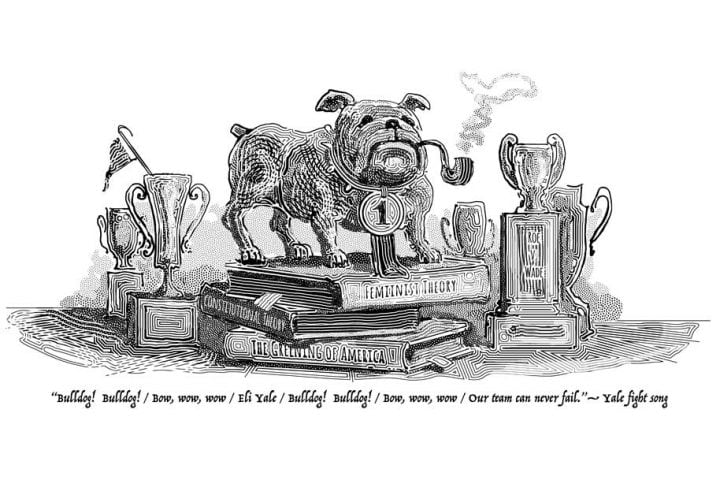American Dialogue: The Founders and Us is the most overtly political and personal of Joseph Ellis’s 13 books, all of which are concerned with the founding era. The book itself is a sort of dialogue between Ellis the historian and Ellis the pundit. “We inhabit a backlash moment,” he writes, given that the “most inexperienced, uninformed, and divisive presidential candidate in American history was elected.” Ellis the historian has won the Pulitzer Prize and a National Book Award, which makes it all the more disappointing that Ellis the pundit is so overwrought.
American Dialogue takes up four fundamental political concerns, each examined by interpreting a particular founder’s words and deeds: race (Thomas Jefferson), economic equality (John Adams), the Constitution (James Madison), and foreign policy (George Washington). Ellis judges Jefferson hypocritical, Adams regrettable, Madison ambiguous, and Washington laudable. In particular, Jefferson, by the end of his life, was “indistinguishable from most ardent proslavery advocates” in invoking states’ rights to challenge restrictions on slavery. Adams thought every nation needed a natural aristocracy but also fretted that the inescapable inequalities could cleave society. Ellis emphasizes that Madison was principally a politician, not a theoretician. He


